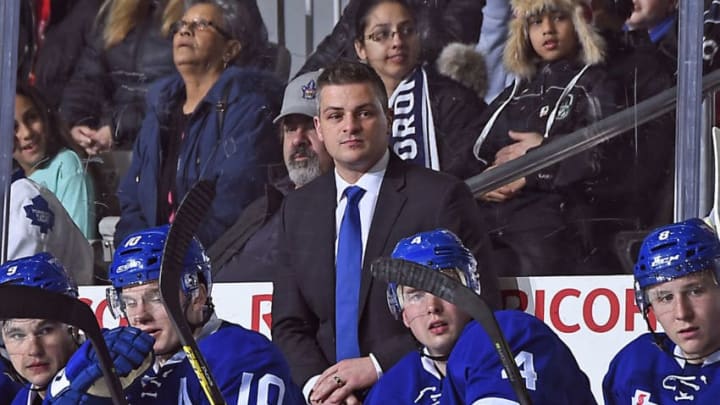Welcome to the new era of coaching in the NHL.
NHL coaches used to be tacticians that would drill their strategies home to players through excessive yelling and sometimes physical altercations. This is no longer the case as modern-day coaches are now valued for their communication skills. Whenever coaches are hired, general managers always make it a point to say that they are excellent communicators as well.
Nowadays, young players are groomed to be professionals at a young age. Early on they are introduced to the world of specialty coaches and train throughout the year, not taking summers off. Young players enter the NHL system way more mature both physically and mentally than players in the past.
They don’t need coaches explaining basic strategies, they’ve been taught it all through their entire young lives. The new role of the coach is to manage personalities and get everyone on the same page. Much like a guidance counselor which is what John Tortorella compares it to.
More from Puck Prose
- Detroit Red Wings 2023 Rookie Camp Has Plenty of Ups and Downs
- This Columbus Blue Jackets rookie doesn’t want to be forgotten
- 2 trades the Boston Bruins must make to secure the Stanley Cup
- 3 reasons the Avalanche won’t win the Stanley Cup in 2024
- This is a big year for Alex Turcotte and the Los Angeles Kings
In an interview with ESPN, Rick Tocchet (head coach of the Arizona Coyotes) talked about the importance of the mental side of coaching.
"That’s one of my strengths, communicating with a young player. I can X-and-O’s with anybody. I can tell you what Washington does. I can tell you what the Rangers do, and that’s great. But I’m more worried about our team. The mental aspect with a player is more than half the battle nowadays. That’s why I think communication is so big for a coach in general."
If you look around the league and study the teams that have rebuilt and have established young cores, another common denominator is that their head coaches are known for their communication skills. Being able to reach a young player and get him to play for you is key for these young teams. If you can’t do it, players will give up on you and it will be up to management to find someone who can.
The Vancouver Canucks have Travis Green, Ottawa Senators have D.J. Smith, the Toronto Maple Leafs have Sheldon Keefe after the team started to push Mike Babcock away.
Here is Pierre Dorion explaining why he hired D.J. Smith to be their new head coach:
“[He] is a great communicator and an exceptional strategist. His passionate approach, coupled with his ability to teach the game, is exactly what we were looking for throughout the process.”
For the longest time, the NHL just recycled their coaches over and over but now, we are seeing a growing number of teams reaching outside the NHL bubble for coaching help. The Buffalo Sabres went to Germany to acquire Ralph Krueger and many teams are promoting their AHL coaches like the Boston Bruins with Bruce Cassidy and the New York Rangers with David Quinn.
Over-coaching was a huge problem in the NHL and it led to stagnant hockey and the “dead puck era”. They didn’t let players play instinctively and forced everyone into the same squares. Dumping and chasing became a staple.
What we’re seeing now is a change in coaching philosophy and coaches letting their players play. Hockey is such a fast-paced game and relies on players reacting with their instincts. Since these players are trained so well, it allows coaches to trust the players and play the game instinctively.
